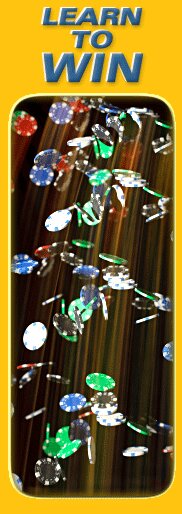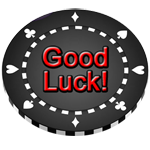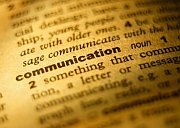Roulette Quiz
by John Grochowski
Attention players: It's Roulette Quiz time at the Learn Roulette Wheel Program.In this spin around the wheel, you can test your knowledge of the game, its history and the odds with a quiz.
We begin the Roulette Quiz with the first of 10 questions about game history.
Roulette Quiz Questions 1 - 5
1) Roulette in its modern form dates back to:
A. Baden-Baden in the 1500s.
B. Paris in the 1700s.
C. Las Vegas in the 1900s.
2) The most important difference between American and European roulette is:
A. There are more bets available in Europe.
B. The U.S. wheel is more finely balanced.
C. The European wheel does not have 00.
3) The roulette wheel has numbers arranged:
A. So that consecutive numbers are approximately opposite each other.
B. In numerical order.
C. In numerical order, except that 0 and 00 are opposite each other.
4) At the roulette table, roulette chips have a value:
A. Of $1 each.

B. Of $5 each.
C. Determined when you buy them.
5) The house edge at American roulette:
A. Is higher than at most table games.
B. Is lower than at most table games
C. Is about the same as at most table games.
Roulette Quiz Questions 6 - 10
6) The house edge at roulette comes from:
A. The presence of zero and/or double-zero.
B. Numbers occurring less often than by random chance.
C. Skill of the dealer in landing the ball in numbers with no bets.
7) Placing a split bet on zero and double-zero in addition to other wagers:
A. Decreases the house edge.
B. Increases the house edge.
C. Makes no difference on the house edge.
8) The house edge on single-number bets:
A. Is higher than on even-money bets such as red/black or even/odd.
B. Is lower than on even-money bets such as red/black or even/odd
C. Is the same as on even-money bets such as red/black or even/odd
9) If double-zero has come up the last three spins in a row, the next spin is:
A. More likely than usual to be double-zero.
B. Less likely than usual to be double-zero.
C. About as likely as usual to be double-zero.
10) If some numbers consistently occur more frequently than expected by random chance, this:
A. Favors the house.
B. Favors the player.
C. Makes no difference.
How did you do with this Roulette Quiz? Here are the Roulette Quiz Answers:
1) B. Paris in the 1700s. Modern roulette wheels, complete with alternate red and black slots with numbers, have been traced to Paris in 1796.2) C. The European wheel does not have 00.
The standard European wheel has only a 0, with no 00, while most American wheels have both 0 and 00. That leaves the American wheel with 38 numbers – 1 through 36 plus the two zeros, while the European wheel has only 37 numbers --- 1 through 36 plus 0.
Calling them American and European wheels does not mean you can’t find double-zero wheels in Europe or single-zero wheels in the United States. However, in the U.S., double-zero wheels far outnumber the single-zero versions. Answers for roulette quiz questions 3 - 4 follow.
3) A. So that consecutive numbers are approximately opposite each other. It's not perfect, but the attempt was made to place consecutive numbers opposite each other. Check out the numbers around 0 and 00. Zero is flanked by 2 and 28; on either side of 00 are 1 and 27.
4) C. Determined when you buy them. One color of roulette chip can have several different values over the course of a day. I might buy in for $10, and tell the dealer I want 25-cent chips.
After I leave, another player might buy in for $50 and request $1 chips, and another might buy in for $500 and want $10 chips.
The dealer keeps track with a marker placed atop a chip of the designated color. Take caution. Since roulette chips may have several different values over the course of the day, they may not be redeemed at the cashier's cage. Redeem for regular casino chips before you leave the table.
Answers for roulette quiz questions 5-6 follow.
5) A. Is higher than at most table games. The house edge on most bets at American roulette is 5.26 percent. That's much higher than the 0.5 percent against a blackjack basic strategy player, 2.5 percent against an average blackjack player, 1.17 on baccarat bets on banker on 1.41 percent on the pass line at craps.
Roulette Quiz Answers 6 - 10
6) A. The presence of zero and double-zero. The house pays all bets according to odds that would be accurate if there were 36 numbers on the wheel. But with 0 and 00, there are 38 numbers.
True odds of winning a single-number bet are 37-1, but winners are paid only 35-1.
7) C. Makes no difference on the house edge. The house edge applies to 0 and 00 just as it does to any other bet on the wheel. If you place single-number bets on 2, 14, 29 and 36, each with a house edge of 5.26 percent, and add a split bet on 0 and 00, which also has a house edge of 5.26 percent, the house edge on your total bet remains 5.26 %. Answers for roulette quiz questions 8 - 10 follow.
8) C. Is the same as on even-money bets such as red/black or even/odd. On an American wheel, all bets carry a house edge of 5.26 percent except the five-number bet on 0, 00, 1, 2 and 3. On that combination, the house edge is 7.89 percent.
The European wheel, with no five-number bet since there is only one zero, has a house edge of 2.7 percent on all wagers. On even-money bets, European casinos often offer an en prison rule. If you bet on red, for instance, and the ball lands on 0, you don’t lose the wager. It’s placed in prison. Then, if red turns up on the next spin, you get your wager back. That cuts the house edge to 1.35 percent, putting single-zero roulette alongside the better bets in the casino.
9) C. About as likely as usual to be double-zero. Past results do not affect future outcomes. Unless you've stumbled on a biased wheel, double-zero has a 1 in 38 chance of hitting on every spin, regardless of what's happened before.
That’s where many roulette systems fall down. Players who believe that a number that has come up several times recently will stay hot, players who believe it will turn cold … or players who believe a number that hasn’t hit in a while is due to come up --- all will be ground down by the math of the game in the long run.
10) B. Favors the player. If some numbers occur more often than by random chance, and the player knows about it, the player can adjust bets accordingly. That’s the last thing the house wants. As long as the wheel is balanced and shows no bias to certain numbers, the house can rely on collecting its 5.26 percent on a double-zero wheel or 2.7 percent on a single-zero wheel.
Roulette Quiz concludes with this winning story.
A bias in the wheel opens the door for a sharp player to take advantage, as in 1873 when English engineer Joseph Jaggers found a biased wheel in Monte Carlo. His $325,000 in winnings would be a tidy sum today, but it was astronomical in 1873.
Roulette Quiz is followed by Roulette Wheel Quiz
OR
Return to Learn to Play Roulette Program
Gambling Teachers Home
GT is attentive about getting the word out about our free programs, lessons and add-ons offered, however, we ask your assistance and consideration in promoting us.
Click link below that reads, "Enjoy this page? Please pay it forward. Here's how..." to add a link to your site, blog or personal page.
Tips, Terms & Wins
A Party and Early Retirement
Timothy Alexander, 33 is an aviation supervisor from Roanoke, TX who was celebrating both his mother’s and his own birthday at the New York, New York, Las Vegas. “I like to play Wheel of Fortune,” said the excited winner. “I had been winning small jackpots all day and when I realized how much I had won this time, I started yelling. I could not believe it.”The megajackpot of $1,122,983 was struck on a Wheel of Fortune dollar progressive. Future plans include an early retirement.





